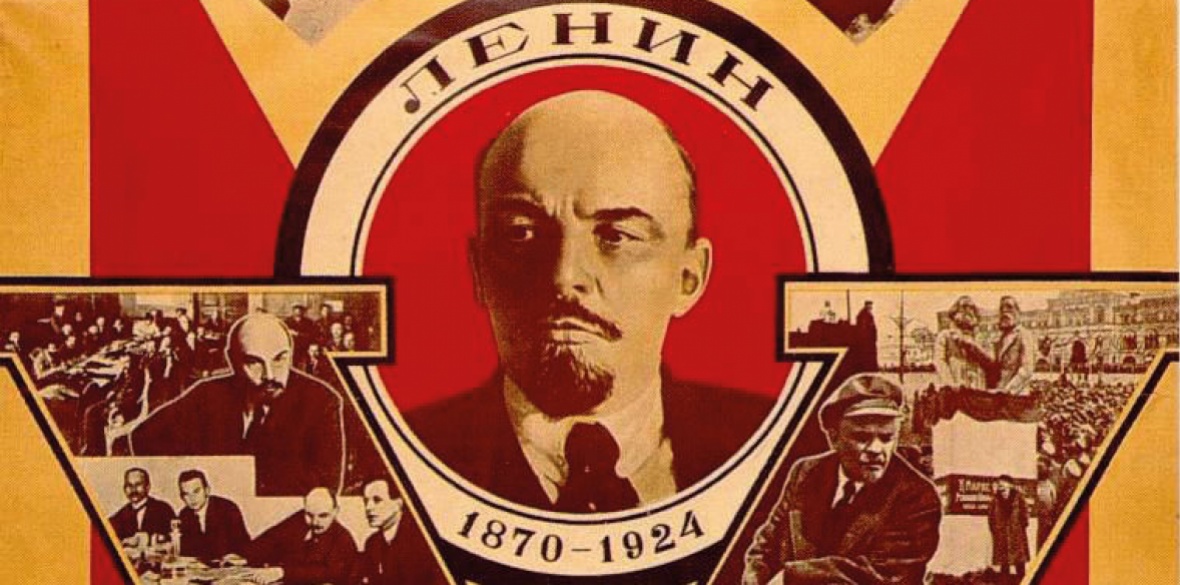This is the last article you can read this month
You can read more article this month
You can read more articles this month
Sorry your limit is up for this month
Reset on:
Please help support the Morning Star by subscribing here
COMRADE LENIN famously noted that “There are decades where nothing happens; and there are weeks where decades happen.”
Communists and indeed all those dedicated to bringing about a new world have inevitably thought, at one time or another, on what Lenin might think or say about the 100 years that have passed since his death.
So much has changed. So much has transpired for humanity and for the global communist movement which Lenin played such a decisive role in creating.
The centenary of Comrade Lenin’s passing inevitably and quite rightly leads us to evaluate his life, his achievements and his legacy today.
Lenin’s indisputable individual brilliance, his foundational contribution to our ideology and his iconic status in our propaganda can easily lead us to forget that Lenin was a man who lived, worked and struggled.
Lenin was a key figure in the growing labour and socialist movement in Russia.
It was during this period, through tireless work and study, building on the ideas of Marx and Engels, that Lenin developed and refined fundamental concepts of the communist movement — imperialism, state monopoly capitalism and the need for a vanguard party of the working class.
But Lenin was not an academic or a theoretician who opined from the comfort and safety of an armchair.
Lenin’s ideas were tested in practice and in the fire of struggle. For all of the experience and understanding gained, he paid a dear price — hunted by the tsarist authorities and forced into exile, including here in Britain, where he worked at what is today the Marx Memorial Library.
Lenin would of course go on to lead the Great October Socialist Revolution — one of the single most important events in human history, an event which smashed centuries of tsarist autocracy, birthed the world’s first socialist state and opened a new era, the era of international proletarian revolution.
The Soviet state which Lenin helped to found would go on to make stunning achievements in human development, in science and the arts, women’s liberation, minority rights, the defeat of fascism and in the ideological and material support for decolonisation.
But in 2024 the Soviet Union is gone and has been for decades. Capitalism has proven itself to be more adaptable than was anticipated a century ago.
What does this mean for Lenin’s legacy?
If Lenin were alive today he would not lament or slump in defeat over the fate of the Soviet Union.
Nor would he content himself with navel-gazing, harking back to a halcyon time or endlessly rehashing battles past.
Lenin would not expect this of the movement he inspired.
Lenin would again ask himself and the movement — “What is to be done?” and then set about doing it with a singular determination and an invincible will to win.
The analysis of monopoly and imperialism that Lenin developed is even more relevant today than when first written. Lenin’s concept of a vanguard communist party has proven itself to be a powerful and, so far, the only model of leading the struggle to take and hold working-class state power and begin the advance on the path to socialism.
The destruction of the USSR by imperialism does not vitiate Soviet socialism’s countless achievements. The lessons gained by that first experiment are carried forward and applied in the many socialist states and the communist parties which continue to advance today.
Lenin’s legacy did not die with the Soviet Union. It lives on today in the world historic movement that he forged.
For all those determined to change the world and create a society free from exploitation and oppression, Lenin’s ideas and guide to action have only been vindicated and become more fundamental in the century that has passed.
Lenin lives — live like Lenin.












